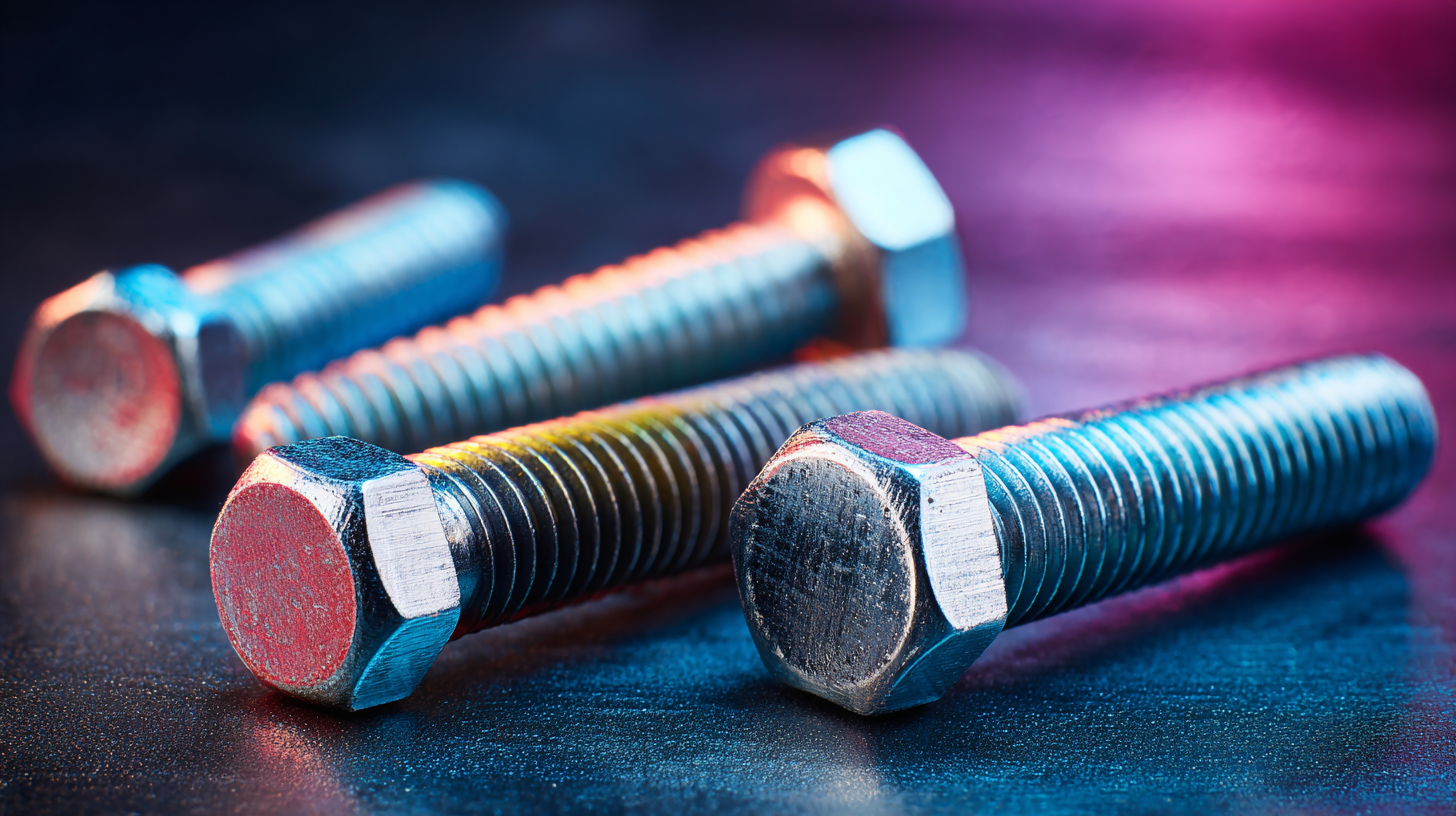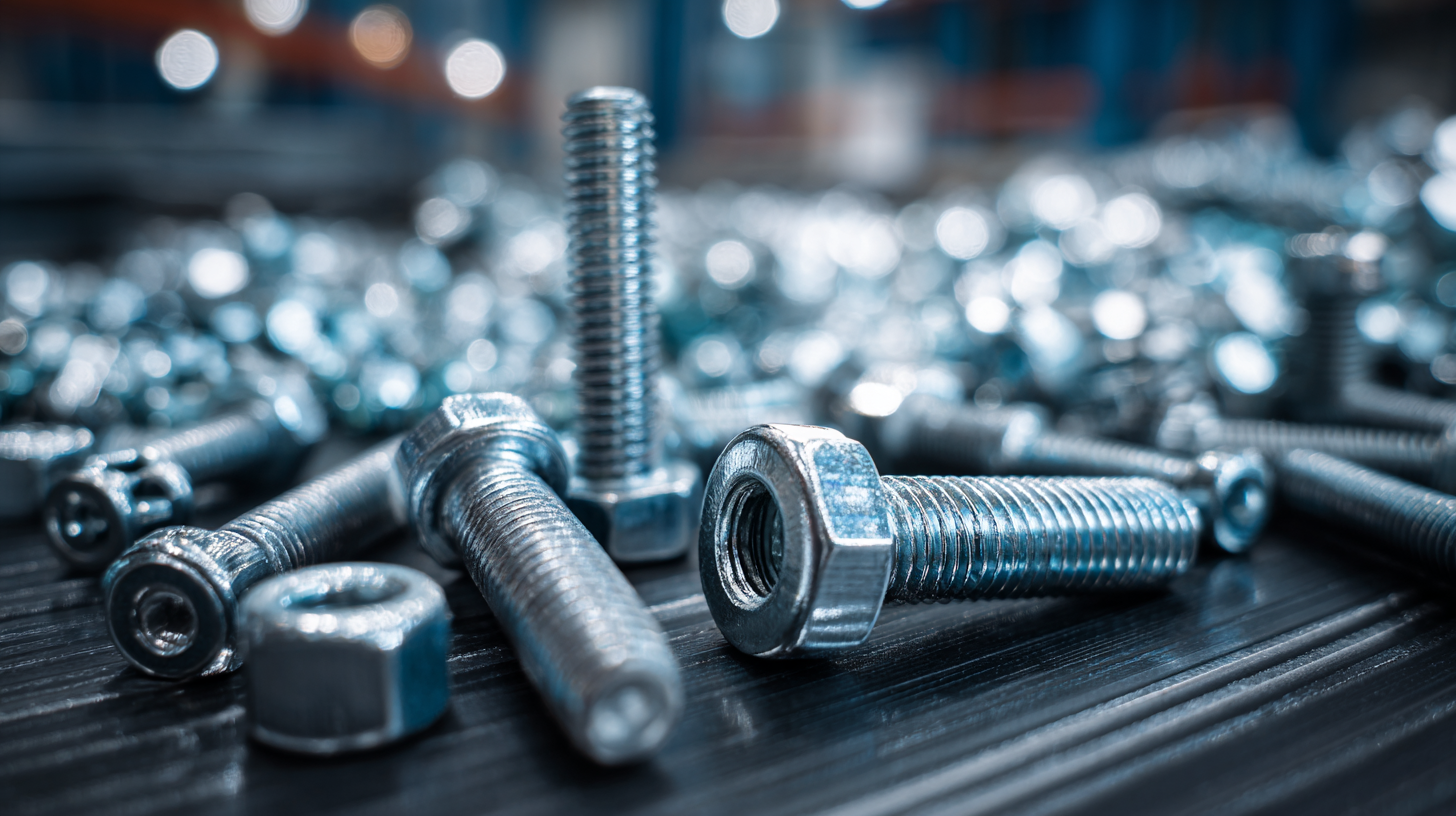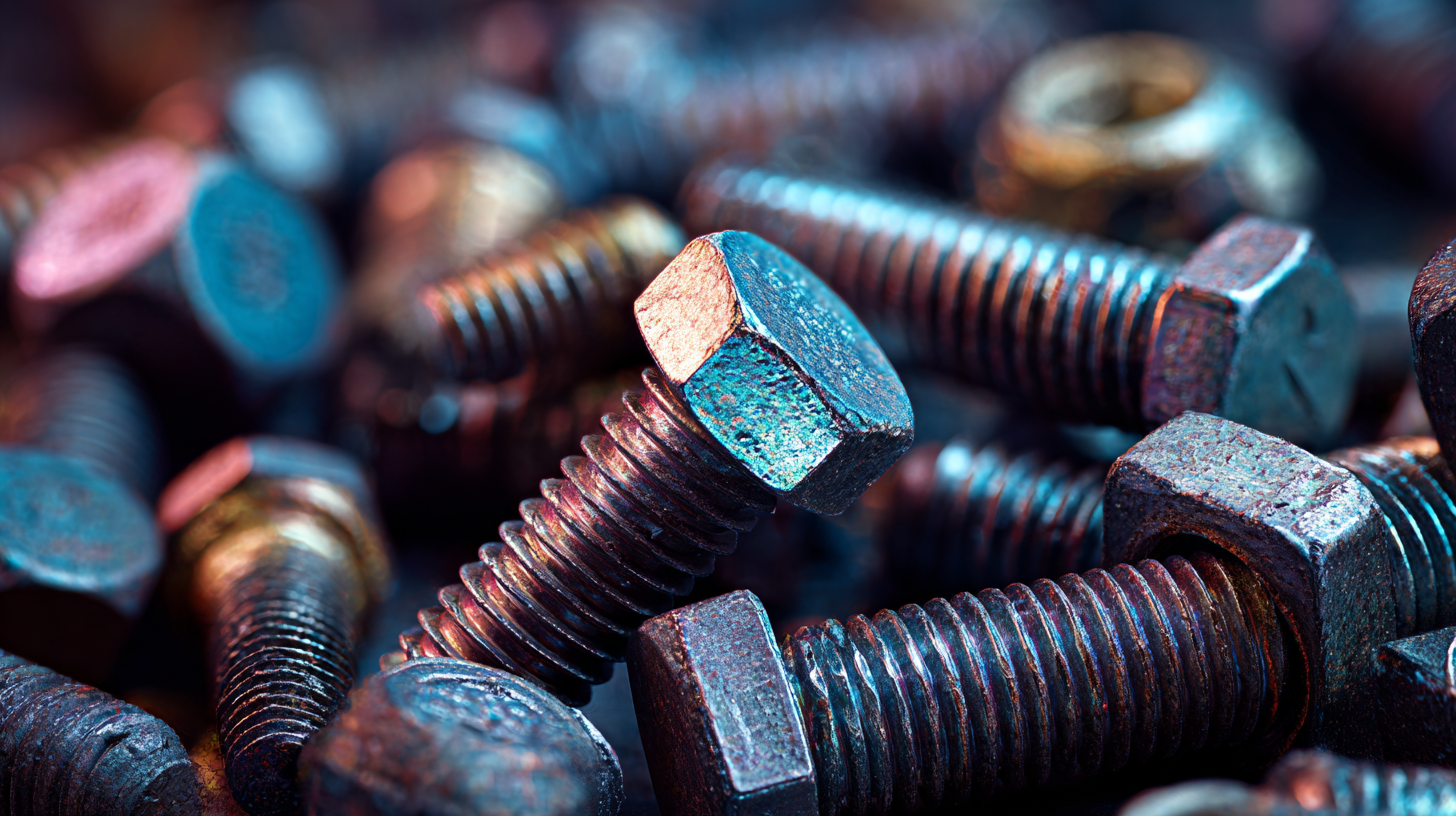Inquiry
Form loading...
As we approach the evolving landscape of 2025, understanding emerging trends in Machine Bolts technology becomes crucial for global buyers seeking to optimize their procurement strategies.
 Machine Bolts serve as essential components in various industrial applications, and staying informed about their detailed technical specifications can significantly impact the performance and durability of manufacturing processes.
This blog aims to equip you with a comprehensive guide to navigating the latest advancements and innovations within the Machine Bolts sector. From the intricacies of different materials to the latest manufacturing techniques, we will delve into a wealth of information that empowers buyers to make informed decisions.
Whether you are looking to enhance your product offerings or streamline your supply chain, understanding these trends will be invaluable in today's competitive market.
Join us as we explore the ultimate procurement guide tailored for savvy stakeholders in the world of Machine Bolts.
Machine Bolts serve as essential components in various industrial applications, and staying informed about their detailed technical specifications can significantly impact the performance and durability of manufacturing processes.
This blog aims to equip you with a comprehensive guide to navigating the latest advancements and innovations within the Machine Bolts sector. From the intricacies of different materials to the latest manufacturing techniques, we will delve into a wealth of information that empowers buyers to make informed decisions.
Whether you are looking to enhance your product offerings or streamline your supply chain, understanding these trends will be invaluable in today's competitive market.
Join us as we explore the ultimate procurement guide tailored for savvy stakeholders in the world of Machine Bolts.
Understanding the intricacies of import and export certifications for machine bolt technology is crucial for global buyers navigating the increasingly complex landscape of manufacturing. Recent developments, such as the Indian government's new mandate for BIS certification on fasteners, including nuts and bolts, highlight the challenges suppliers may face. This certification aims to improve quality and safety standards but could pose barriers to manufacturers attempting to enter or expand in the Indian market.
When dealing with import and export certifications, it is vital to stay informed about regulatory changes that may directly affect procurement strategies. Ensuring compliance not only mitigates legal risks but also fosters trust with partners.
Tip 1: Maintain open communication with local regulatory bodies to stay ahead of evolving certification requirements.
Tip 2: Consider investing in training for your procurement team to better navigate the certification processes and understand country-specific regulations.
Tip 3: Build relationships with reliable third-party certification agencies that can help streamline the certification process and offer guidance on best practices.
As we approach 2025, the landscape of machine bolt procurement is set to evolve dramatically. Buyers must stay attuned to key trends that will shape the future of this industry. Firstly, sustainability is becoming paramount, with an increasing demand for eco-friendly materials and production processes. Buyers should prioritize suppliers who demonstrate a commitment to sustainability in their operations, as this will help align their own business goals with global environmental standards.
Another significant trend is the integration of advanced technologies, such as IoT and AI, into the manufacturing process. This shift allows for better tracking of inventory and streamlined supply chain management. Buyers should consider companies that utilize these technologies, as they can provide greater transparency and efficiency in procurement.
Tips for procurement professionals include conducting thorough research on potential suppliers, focusing on their commitment to innovation and sustainability. Additionally, fostering strong relationships with suppliers will be crucial for navigating complexities in the market. By remaining proactive and adaptive to these trends, global buyers can position themselves for success in the forthcoming procurement landscape.
This chart illustrates the key trends shaping the future of machine bolt procurement in 2025, highlighting the impact level of various factors such as material innovation and sustainability efforts. Buyers can use this information to make informed procurement decisions.
As global buyers navigate the complexities of procurement in 2025, understanding the challenges within supply chains is crucial. According to a recent report by McKinsey & Company, 79% of companies have faced supply chain disruptions since the pandemic, highlighting a pressing need for strategic solutions. Factors such as geopolitical tensions, fluctuating raw material prices, and the ongoing impacts of climate change require buyers to be agile and informed.
To counter these challenges, companies are increasingly leveraging digital tools and advanced analytics. A study by Gartner indicates that organizations utilizing supply chain management software have seen a 20% improvement in efficiency and a 15% reduction in costs. Emphasizing real-time data tracking and collaboration with suppliers can enhance transparency and responsiveness, helping buyers manage risks. Additionally, diversifying suppliers and investing in local sourcing are critical strategies for resilience, enabling businesses to adapt to shifts in supply availability and demand trends while ensuring quality and sustainability in machine bolt technology procurement.

In the rapidly evolving machine bolt industry, evaluating suppliers has become paramount, especially in light of recent challenges highlighted in sectors like aviation. As companies strive to enhance supplier risk assessment, leveraging advanced technologies such as AI can significantly improve the procurement process. AI aids in early disruption detection and ensures compliance-ready supply chains, creating a more robust risk management framework for businesses.
Furthermore, the growing threat of counterfeit parts, as demonstrated by incidents in aviation, emphasizes the necessity for stringent supplier evaluation practices. Companies must conduct thorough audits to verify authenticity and track the supply chain's integrity. By implementing best practices in supplier risk assessment—ranging from enhanced due diligence to employing AI-based monitoring tools—buyers can safeguard their operations against potential disruptions and ensure the quality and reliability of machine bolts. This proactive approach not only mitigates risks but also strengthens supplier partnerships in an increasingly competitive market.

As we move into 2025, machine bolt technology is on the cusp of significant innovation, driven by advancements in manufacturing and sourcing. From automation to smart materials, these innovations are reshaping how global buyers approach procurement. One of the key technologies to watch is the incorporation of IoT (Internet of Things) in production processes, which allows for real-time monitoring and quality control, leading to enhanced efficiency and reduced waste.
Tip: When sourcing machine bolts, consider suppliers who leverage IoT technologies. This will not only improve transparency but also ensure that the products meet the required standards consistently.
Additionally, machine bolt manufacturing is seeing a rise in alternative materials, such as lightweight composites and advanced alloys. These materials not only improve strength and durability but also cater to the growing demand for environmentally friendly options. Buyers should actively seek suppliers who are adopting these innovative materials to stay ahead in the competitive market.
Tip: Engage in discussions with potential suppliers about their material choices and sustainability practices. This can lead to better sourcing decisions and align your procurement strategy with future industry trends.
